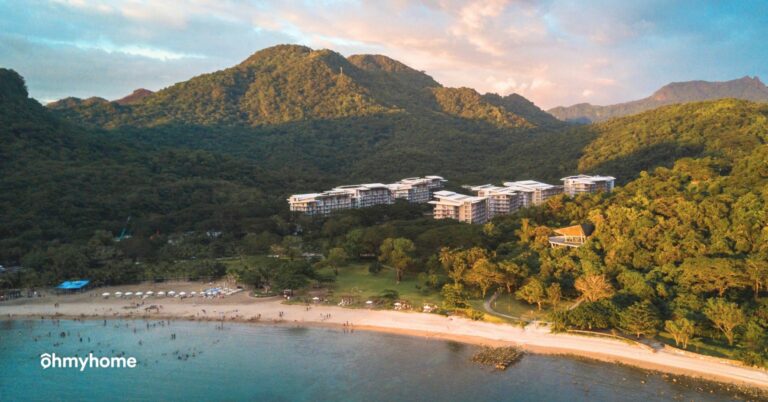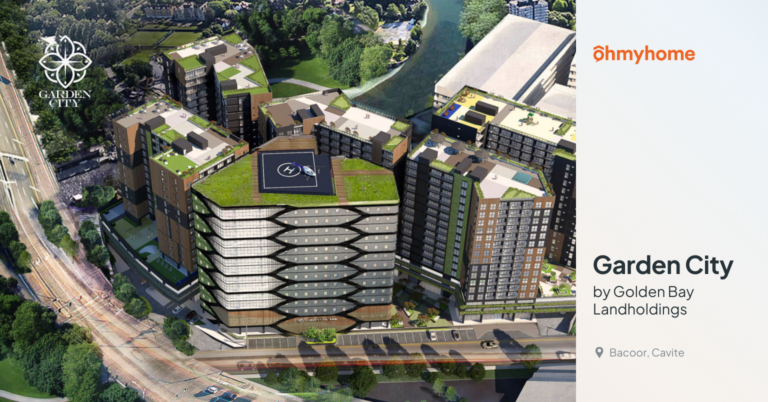The best time to buy property was yesterday, but don’t worry! For those who have yet to invest in property, there’s still time. Property is one of the most stable assets you can invest in, with Medium estimating the total global value at $217 trillion. When times get rough, assets such as stocks, bonds, and even currency can fall to zero or below zero rates. Properties, however, will still retain some value. For this reason, it pays to make real estate investments when you have the means.
Overseas Filipino Workers (OFWs) are some of the hardest-working contract employees worldwide. In exchange for staying overseas for a set period and forsaking the company of families and friends, they get to work abroad and earn good money. OFWs typically choose to work away from home so they may have the opportunity to save enough money and fulfill the typical Filipino’s dream of purchasing their own home. In some cases, they earn more than enough to dabble in multiple real estate investments.
The Challenge of Making Real Estate Investments from Abroad
Admittedly, buying Philippine properties can be a challenge for OFWs stationed abroad. Big ticket items such as house and lot units or condominiums often require personal attention. During the actual purchase, you’ll also need to be present to sign documents and submit additional requirements. Then there’s the challenge of looking for the right real estate investments to make.
Thankfully, modern property technology helps bridge the gap between buyer and property.
With so much information available online, OFWs with time to spare can browse available properties for sale. For ultra-busy workers, tech property platforms like Ohmyhome can make searching for property investments a lot easier and sometimes even more fun.
To help jumpstart your search for property investments, here are five tips geared toward OFWs looking to make their first real estate purchase.
1. Set Your Expectations
First things first: what’s your objective? Are you buying a house where you and your family will move in and live? Or, are you buying properties to flip, rent, or lease? The first option is a highly personal decision, as your home will form many core memories for you and your family. This means you’ll need to choose the right location, dwelling type, and amenities that come with your purchase. Ultimately, the decision to buy a house can depend on whether you like it and see yourself living there for a while.
Meanwhile, choosing to buy properties for investment purposes entails making sound business decisions. It often boils down to how much your investment will pay off in the future – whether in terms of rent income or via property resale. Either way, you expect to make a tidy profit once the smoke clears.
Truthfully, both objectives remain real estate investments in their own right. However, knowing what you want to do with your planned new home helps you narrow down your list. When choosing your next home, it’s natural to choose one located in or near your hometown or other familiar places. Meanwhile, current trends often will dictate where you should place your money.
2. Do the Research…Efficiently
Once you’ve narrowed down your search, it’s time to visit developer sites and see what they’re selling at the moment. Thankfully, many local developers invested in company websites that list their offerings. Unfortunately, some developer sites are more user-friendly than others, so getting important details such as price, floor size, and available units can be challenging. In addition, you might find it difficult to compare one developer’s property with its competitor.
Meanwhile, property tech platforms like Ohmyhome help save you both time and trouble. Instead of visiting individual sites and getting mismatched information, why not drop by Ohmyhome and choose from over 100,000 units in over 1,000 available properties?
3. Check Your Seller’s Credentials
Before even thinking about handing your hard-earned money to a developer, check if everything about the project is aboveboard. When dealing with an agent, always check for credentials such as their license registration number. In the Philippines, a sales agent will only receive a license if they fulfill the following requirements:
- Upstanding Filipino citizen with no prior criminal convictions
- At least two years or 72 units in college
- At least twelve (12) units in real estate brokerage
Meanwhile, the developer should also have an active registration with the Human Settlement Adjudication Commission (formerly Housing Land Use and Regulatory Board or HLURB). The developer should also have an active government-issued License to Sell for the particular property project you’re eyeing. To quell any doubts, you can visit the Human Settlement Adjudication Commission (HSAC) website to verify your developer’s credentials.
4. Get Local Representation
Having an official representative back home can help give you important feedback about the properties you’re considering investing in. Don’t wait until you’re all set to buy before designating a representative. Some properties definitely look good online but they won’t pass the eye test in real life. Have your rep look over the actual property, scout the location, and share their impressions. Unless you can afford to frequently fly home to look over the property and sign documents, getting local representation is the next best thing. A Special Power of Attorney (SPA) is usually required to make the assignment legally binding. The real estate agent can usually provide the SPA form that you’ll need to fill up, sign, and consularize at your local Philippine embassy.
Who should you get as your representative? While a spouse or children 18 years old and above are the usual choices to handle representation, you can actually get a lawyer to do your lawyer stuff. The lack of personal ties can result in more transparent transactions.
5. Anticipate Added Costs
Buying a house will require more than just the purchase price. Under Philippine law, certain add-on fees and taxes will push your budget upward significantly. When finalizing the contract price and terms with your property agent, always bring up the topic of additional charges. While a few developers will gladly shoulder part of the costs, many will leave these costs off the sale price and will require you to manage it yourself.
Below are some of the many fees and taxes required by the Philippines government. The list also includes whether the buyer or the seller should pay the specific fees.
- Capital Gains Tax. This is a tax levied on the current owner for the monies gained by selling property. The capital gains tax is usually charged to the seller. Private property owners are charged 6% of the contract price, while developers get hit with 10%.
- Document Stamp Tax. The document stamp tax covers payment for the various document stamps used as evidence for a completed transaction. The amount charged is equivalent to 1.5% of the property price. Buyers are usually on the hook for this.
- Registration Fee. New property owners will need to file the title’s change in ownership at the Land Registration Authority (LRA). This includes a fee equivalent to one-quarter percent (0.25%) of the sale price.
Transfer Tax. Buyers usually pay the transfer tax of 0.75% of the price for Metro Manila properties or half a percent (0.5%) for provincial real estate. This is for the process of legally changing ownership of a property.
A Note on Taxes and Fees
As a property buyer, make sure you know which fees are due to your account and which ones are the seller’s expense. In many cases, developers will tack the fees to the final sale price but this often includes capital gains. Always read the fine print before putting your signature on the dotted line.
OFWs Have a Friend With Ohmyhome
Working far from home while searching for the perfect real estate investments? Let Ohmyhome help you get the best properties and find you the best deals. We’ll also be on hand to provide other services such as help you sell your home or lease your properties. Even better, you can receive help from Ohmyhome’s army of real estate sales professionals. Simply talk to us today between 9 AM to 9 PM (GMT+8) via live chat, through Viber online at +639177006497, or via instant messaging using Facebook Messenger.
We know how difficult it can be to look into potential real estate investments and make an educated choice. Sign up for an Ohmyhome account today and we’ll gladly help you every step of the way!






















































